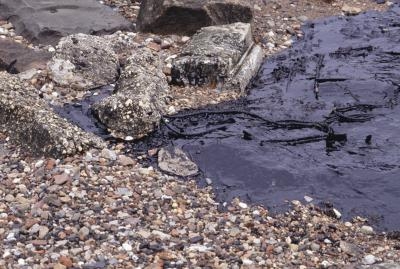
Water and motor oil are both liquids, but that's about all they have in common. Crude and refined oil contain dozens of different compounds, whereas pure water is composed of just hydrogen and oxygen molecules. However, the density of water can vary depending on what's in it.
The easiest way to compare the weights of oil and water is to examine their specific gravities. Specific gravity is a measurement used to compare the relative density of any substance to that of pure water when measured at one atmosphere of pressure (about 14.7 psi). Specific gravity is expressed as a percentage; a substance that has a specific gravity of 0.90 is 90 percent as dense as water, and one with a measurement of 1.10 weighs ten percent more than water. The material's temperature also plays a role, but doesn't affect this comparison much.
Pure water is the reference point, so it has a specific gravity of 1.000. Salt is more dense than water, so seawater has a specific gravity of about 1.025, depending on the location. Crude oil density varies by location; "light" crude, such as that from Texas, measures at about 0.876, and heavier oils check in at 0.918. Refined oils, such as 5W-30 motor oil, are a bit lighter, at around 0.861.
Between its freezing point and about 100 degrees Fahrenheit, pure water weighs in at about 8.3 pounds per gallon and seawater weighs about 8.5 pounds (1.025 x 8.3 = 8.50) per gallon. Given their specific gravities, light crude weighs about 7.27 pounds per gallon, heavy crude weighs 7.61 pounds per gallon and refined motor oil checks in at about 7.14 pounds per gallon.